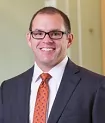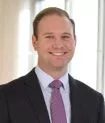A weekly summary of the precedential patent-related opinions issued by the Court of Appeals for the Federal Circuit and the opinions designated precedential or informative by the Patent Trial and Appeal Board.
Energy Heating LLC, et al. v. Heat On-The-Fly, LLC, et al., No. 2020-2038 (Fed. Cir. (D.N.D.) Oct. 14, 2021). Opinion by Prost, joined by Moore and Stoll.
In an earlier appeal, the Federal Circuit affirmed a judgment that a patent owned by Heat On-The-Fly (HOTF) was unenforceable due to inequitable conduct. The Federal Circuit also vacated the district court's denial of attorneys' fees under 35 U.S.C. § 285 and remanded. On remand, the district court found the case to be exceptional under § 285 and awarded attorneys' fees. HOTF then filed this appeal, challenging only the district court's exceptionality determination.
HOTF raised three grounds: (1) that the district court based its decision on an erroneous factual finding, (2) that the district court failed to address or properly weigh the relevant factors, and (3) that the district court failed to properly apply the law. The Federal Circuit addressed each ground and concluded that the district court did not abuse its discretion in finding the case exceptional under § 285.
First, HOTF contended that the district court erroneously credited a bad-faith finding by the jury. HOTF argued that the finding concerned an unrelated tortious interference claim. The Federal Circuit disagreed, concluding that it was within the district court's discretion to consider HOTF's bad-faith representations that it held a valid patent. HOTF also pointed to the jury's finding that HOTF had not committed the state-law tort of deceit, but the Federal Circuit concluded that the finding "simply has no bearing on inequitable conduct."
Second, HOTF contended that the district court failed to properly weigh the factors relevant to exceptionality under § 285. The Federal Circuit was not persuaded, noting that "the district court provided ample support for its conclusion."
Lastly, HOTF contended that the district court misapplied the law by viewing an inequitable conduct finding as mandating a finding of exceptionality. The district court, however, had expressly stated otherwise while also noting that "other courts have universally" found "exceptionality if inequitable conduct is found." The Federal Circuit discerned no abuse of discretion in the district court's application of the relevant law.
Mobility Workx, LLC v. Unified Patents, LLC, No. 2020-1441 (Fed. Cir. (PTAB) Oct. 13, 2021). Opinion by Dyk, joined by Schall. Opinion concurring in part and dissenting in part by Newman.
Mobility appealed a judgment by the Patent Trial and Appeal Board determining that certain claims of Mobility's patent were unpatentable as obvious. Without reaching the merits of the Board's decision, in light of Arthrex, the Federal Circuit remanded to the Acting Director to determine whether to grant rehearing. The court also addressed a number of constitutional arguments asserted by Mobility, ultimately concluding that each lacked merit.
First, Mobility argued that APJs have an impermissible financial interest in "instituting AIA proceedings to generate fees to fund the agency and ensure future job stability." The Federal Circuit addressed the issue at length, concluding that "congressional control of the USPTO's budget renders any agency interest in fee generation too tenuous to constitute a due process violation."
Second, Mobility argued that individual APJs have "a personal financial interest in instituting AIA proceedings in order to earn better performance reviews and bonuses." Mobility asserted that APJs can receive a performance bonus by earning at least 84 decisional units per year, creating an incentive to institute IPR proceedings. Mobility also asserted that, similarly, salary increases are conditioned on performance reviews.
The Federal Circuit rejected the argument, concluding that APJs "do not have a significant financial interest in instituting AIA proceedings to earn a bonus." Also, "even if there were an incentive to institute AIA proceedings to earn decisional units, any interest APJs have in instituting AIA proceedings to earn decisional units would be too remote to constitute a due process violation."
Lastly, addressing Mobility's Appointments Clause challenge, the Federal Circuit agreed with Mobility that a remand is required under Arthrex "to allow the Acting Director to review the final written decision of the APJ panel pursuant to newly established USPTO procedures." The Federal Circuit retained jurisdiction over the appeal during the limited remand.
Judge Newman filed a separate opinion concurring in part and dissenting in part. She agreed with the decision to remand but disagreed with the majority's "endorsement of the status quo" in connection with the constitutional issues raised by Mobility.
Judge Newman also addressed "another possible Appointments Clause concern, stemming from the PTO's conduct of the procedure of 'institution'" of IPR proceedings. She stated that the current procedure for instituting IPRs "appears likely to violate the Appointments Clause, for institution, as it is currently conducted by the PTAB, is a final decision of an inferior officer, without supervision or control or review by a principal officer of the agency." She also explained that, in addition to raising Appointments Clause concerns, this structure "contravenes the America Invents Act and the Administrative Procedure Act."
Judge Newman also addressed Mobility's due process issues arising from APJ "bias or the appearance of bias in the conduct of institution." In her view, the majority "endorse[d] the present system, although these due process concerns are not resolved."
Traxcell Technologies, LLC v. Nokia Solutions & Networks Oy, et al., Nos. 2020-1440, -1443 (Fed. Cir. (E.D. Tex.) Oct. 12, 2021). Opinion by Prost, joined by O'Malley and Stoll.
Traxcell sued Nokia for infringement of three patents related to self-optimizing wireless networks. After claim construction and discovery, the district court granted summary judgment of noninfringement for Nokia. Traxcell appealed.
Two claim terms were at issue on appeal. The district court construed the first disputed term, "location," to mean a "location that is not merely a position in a grid pattern." The construction stemmed mainly from the applicant's disclaimer during prosecution, where the applicant had distinguished prior art that used a position in a grid pattern as the location.
The Federal Circuit agreed with the district court's construction, concluding that "in view of the prosecution history, the disclaimer here was clear and unmistakable." The Federal Circuit also agreed with the district court that, under this construction, there was no genuine dispute of material fact that the accused technology's geolocation systems do not employ a "location" as claimed.
The Federal Circuit next addressed the claim terms "first computer" and "computer." The Federal Circuit agreed with the district court that the terms require "a single computer" that can perform certain recited functions. The claims recite that "a computer" (or "a first computer") performs a function, and then further recites that "the computer" (or "said first computer") performs additional functions. The Federal Circuit explained that "it would make little sense-indeed, it would defy the concept of antecedent basis-for the claims to recite 'the computer' or 'said first computer' being 'further' programmed to do a second set of tasks if a different computer were to do those tasks instead." The Federal Circuit ruled that the prosecution history confirmed this interpretation because "the patentee clearly and unmistakably disclaimed the use of multiple computers."
After affirming the claim construction, the Federal Circuit agreed with the district court that Traxcell had not presented sufficient evidence to show a genuine factual dispute under a literal infringement theory. And as for the doctrine of equivalents, the Federal Circuit agreed with the district court that "prosecution history estoppel forecloses Traxcell's alternative multiple-computer infringement theory."
Traxcell Technologies, LLC v. Sprint Communications Co. LP, et al., Nos. 2020-1852, -1854 (Fed. Cir. (E.D. Tex.) Oct. 12, 2021). Opinion by Prost, joined by O'Malley and Stoll.
In addition to the lawsuit against Nokia (described in the preceding summary), Traxcell separately sued Sprint and Verizon for infringement of the same three patents related to self-optimizing wireless networks plus a fourth patent directed to network-based navigation. As in the Nokia case, Traxcell appealed both the district court's claim constructions and the court's noninfringement determinations.
The Federal Circuit again addressed issues regarding the claim terms "location," "computer," and "first computer," and resolved them similarly to their resolution in the Nokia appeal-affirming each one.
The Federal Circuit also addressed infringement of a means-plus-function limitation in one of the patents. In the district court, Traxcell had argued that the accused technology included a structural equivalent to the disclosed structure under the function-way-result test. The district court disagreed, reasoning that Traxcell failed to establish that the accused technology operates in substantially the same "way."
The Federal Circuit agreed with the district court's analysis. In particular, the Federal Circuit explained that "showing identical function is not enough." "Traxcell must also provide evidence of identical or equivalent structure," and "here it did not, and so summary judgment [of noninfringement] was proper."
Lastly, the Federal Circuit addressed indefiniteness of a means-plus-function claim in one of the Traxcell patents. The district court determined that the specification failed to disclose adequate corresponding structure to perform the claimed function, and the Federal Circuit agreed. Traxcell's arguments as to the structure amounted to "nothing more than a restatement of the function as recited in the claim." Because the specification lacked the necessary structure, the claim was indefinite.
Hyatt v. Hirshfeld, Nos. 2020-2321, -2323, -2324, -2325 (Fed. Cir. (D.D.C.) Oct. 12, 2021). Opinion by Hughes, joined by Moore and Reyna.
Gilbert Hyatt, a prolific patent filer and litigant, sued the PTO in district court under 35 U.S.C. § 145 after receiving undescribed "adverse results" in connection with certain patents. The district court ordered the PTO to issue some of the patents and awarded attorneys' fees to Mr. Hyatt as a prevailing party. The district court also denied the PTO's request for expert witness fees under § 145, holding that the statute's shifting of "[a]ll expenses of the proceedings" to the applicant does not overcome the American Rule presumption against shifting expert fees.
In an earlier appeal, the Federal Circuit vacated and remanded the district court's decision ordering the issuance of patents, making Mr. Hyatt no longer a prevailing party. Therefore, the Federal Circuit vacated the award of attorneys' fees.
In this appeal, the Federal Circuit addressed-and affirmed-the district court's denial of expert fees "because § 145 does not specifically and explicitly shift expert witness fees."
The Federal Circuit described the issue presented as "whether 35 U.S.C. § 145's language that '[a]ll the expenses of the proceedings shall be paid by the applicant' requires that the applicant pay the expert witness fees of the PTO." The district court held that the statute was not sufficiently explicit to overcome the presumption against fee shifting, and the Federal Circuit agreed.
In affirming, the Federal Circuit described the American Rule presumption that litigants pay their own fees unless a statute or contract provides otherwise. The Federal Circuit also discussed at length the Supreme Court's NantKwest decision, where the Court held that the reference to "expenses" in § 145 does not invoke attorneys' fees with enough clarity to overcome the American Rule.
Ultimately, the Federal Circuit recognized that "this is a close case" and that "there are many arguments" why expert fees should be included under the phrase "[a]ll expenses of the proceedings." The Federal Circuit also acknowledged "that district courts have been awarding expert witness fees under the statute ever since the PTO began using experts." And the court stated that it does not "lightly overturn decades of practice in federal district courts." But in the end, "§ 145 does not specifically and explicitly invoke expert witness fees," and therefore they are not covered.
The content of this article is intended to provide a general guide to the subject matter. Specialist advice should be sought about your specific circumstances.


